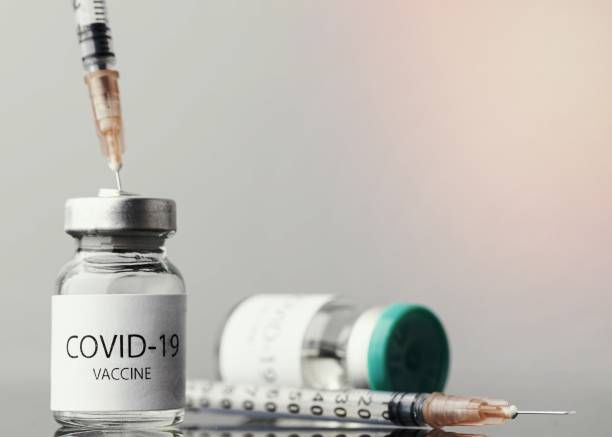This study offers evidence that suggests antibody responses to SARS-CoV-2, whether induced by vaccination or natural infection, persist over time. Initially, there is a phase of rapid decrease followed by a period of stability, which ensures that antibody levels remain sustained. This discovery questions the earlier notion of rapidly decreasing immunity and underlines the importance of booster vaccinations and the positive effect of breakthrough infections in enhancing the humoral response.
The study examined individuals with and without previous exposure to SARS-CoV-2, finding that those with pre-existing immunity demonstrated quicker and more substantial antibody responses after vaccination, resulting in elevated antibody levels over time. It identified an early phase of rapid antibody decline, succeeded by a lasting phase of stabilization. The administration of booster vaccinations equalized antibody levels among individuals with varying immunity histories, and breakthrough infections in previously unexposed individuals boosted antibody concentration to levels comparable to those seen after an extra vaccine dose.
“Our study design allows us to follow individuals longitudinally from the onset of the pandemic, through primary immunization series and now after booster immunizations providing an invaluable opportunity to comprehensively analyze long-term kinetics of antibody-based immunity,” according to the investigators. “We found that anti-spike antibody kinetics after the primary immunization series follow a pattern that would be expected from basic B cell biology. After primary vaccination, serum antibodies produced by plasmablasts reach a high peak.”
3 Key Takeaways
- The study provides evidence that antibody responses, whether from vaccination or natural infection, undergo an initial decline but stabilize over time, ensuring sustained immunity against SARS-CoV-2.
- Findings reveal that booster vaccinations help equalize antibody levels across individuals, regardless of their prior exposure to the virus.
- Understanding the long-term kinetics of antibody responses is crucial for developing strategies to maintain population immunity and combat COVID-19 effectively.
The research utilized data from the Protection Associated with Rapid Immunity to SARS-CoV-2 (PARIS) study, which is an observational, longitudinal study of healthcare workers that began in April 2020. Over 3 years, the research team examined more than 8,000 samples from participants in New York City, employing a SARS-CoV-2 binding enzyme-linked immunosorbent assay to assess antibody responses. This investigation concentrated on evaluating antibody responses following infections, initial vaccinations, booster shots, and breakthrough infections.
“We noted a clear “ceiling” effect with respect to the overall peak antibody titers reached,” according to the investigators. “Although initial titers after the primary vaccination series in previously infected individuals could reach almost 20,000 AUC, overall, the titers in general seemed to peak at approximately 10,000 AUC. This ceiling seemed to slowly become lower with repeated exposures and booster doses.”
In this investigation, the research team evaluated the binding of the SARS-CoV-2 spike protein by polyclonal sera, discovering that temporal changes in antibody affinity do not significantly affect the sensitivity of the assay. A slight correlation between antibody binding and an increase in avidity was identified, indicating plans to further investigate avidity. The study also observed that mRNA vaccines enhance secretory IgA antibodies in individuals with hybrid immunity, a response not seen in those without prior exposure. The focus was on the dynamics of serum antibodies and the antibodies targeting the full-length spike protein, to assess antibodies against the receptor-binding domain (RBD) in the future due to their kinetics. It was determined that the immune responses to the original SARS-CoV-2 spike protein are also effective against variant infections and bivalent vaccines, demonstrating a broad cross-reactivity.
The research reveals that antibody reactions to SARS-CoV-2 mRNA vaccines undergo a typical 2-phase decline, starting with an initial rapid decrease in levels, followed by a phase of stabilization that occurs between 7 to 9 months. Furthermore, the study shows that people with hybrid immunity exhibit superior protection against breakthrough infections, both before and following the introduction of the Omicron variant.
These results indicate that COVID-19 mRNA vaccines generate durable spike-specific antibodies, in alignment with the underlying principles of B cell biology. The findings emphasize the importance of persisting with vaccination initiatives and ongoing research, particularly considering the continuous emergence of new viral variants.
Reference
1. Srivastava K, Carreño J, Gleason C, PARIS Study Group, Krammer F, et. al. SARS-CoV-2-Infection and Vaccine-Induced Antibody Responses are Long Lasitng with an Initial Waning Phase Followed by a Stabilization Phase. 50 Immunity. Published February 22, 2024. Accessed February 27, 2024. doi: https://doi.org/10.1016/j.immuni.2024.01.017

